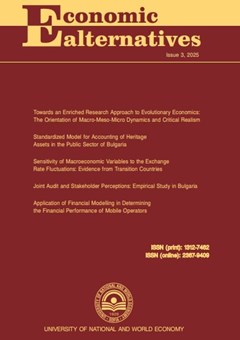Standardized Model for Accounting of Heritage Assets in the Public Sector of Bulgaria
Author: Daniela Milchova Feschiyan
Abstract
This study proves the need for the implementation of a new conceptually based standardized model for accounting of heritage assets as a component of the management of public assets. The argumentation for the scientific and social relevance of the issues is determined. It is suggested that a conceptually based standardized model for heritage asset accounting should be adopted that will bring positive effects with regard to the benefit of financial reports for society at large as well as to the information about heritage assets in Bulgaria. The place of tangible heritage assets has been identified within the structure and content of general purpose financial reports. Arguments have been given in favor of the constructed two-component conceptually based standardized accounting model for heritage asset reporting. The effects are systematized of the introduction of an improved conceptually based standardized model and the assumption is held that the problem at the national level may be resolved only by the adoption of accounting standards that could possibly replace the current practice of the regulation of the accounting in the public sector in Bulgaria through instructions. To reaffirm the research assumption and the accompanying working hypotheses the results from a empirical survey have been presented.

